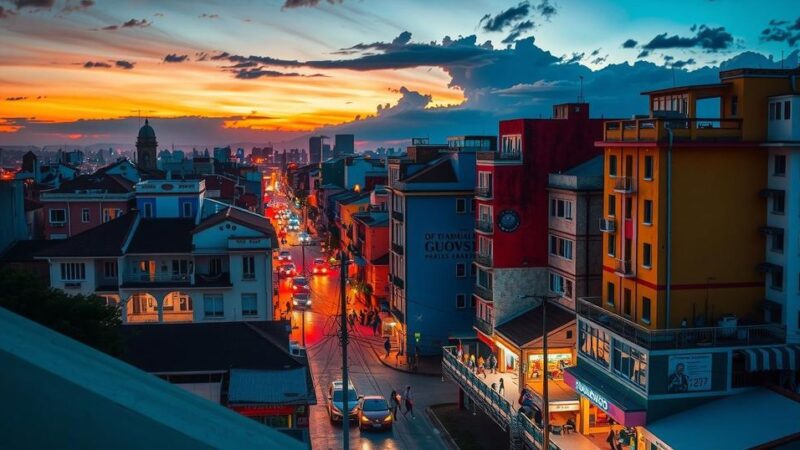Mozambique’s upcoming 2024 National Elections will see voters choose a new president amid an ongoing ISIS-backed insurgency and deepening humanitarian issues. Four candidates are in contention, with Daniel Francisco Chapo of the ruling Frelimo expected to win. This election will test the strength of former independence movements and reflect the discontent of the youth, signaling possible shifts in Mozambique’s political future.
As Mozambique approaches its 2024 National Elections, four candidates are competing for the presidency amidst a backdrop of ongoing security challenges and political tensions. Voters will head to the polls on Wednesday, tasked with selecting a leader capable of addressing the ongoing Islamic State-backed insurgency that has plagued the northern province of Cabo Delgado for several years. Despite the government’s efforts, the insurgency, which has led to severe humanitarian crises and economic troubles, has not yet been vanquished. Daniel Francisco Chapo, representing the ruling party, Frelimo, is widely expected to secure victory as he stands against three other presidential hopefuls. His potential election would mark a historical moment as he would become the first Mozambican president born post-independence from Portugal in 1975, symbolizing a generational shift in leadership. However, the emergence of an independent candidate, particularly one resonating with the country’s young electorate who feel disenchanted with the traditional political landscape, could result in an unexpected challenge to the incumbent party. This electoral process serves as a significant barometer for Mozambique’s democratic processes and the waning influence of former liberation movements, which have struggled with declining popularity in recent years. Consequently, this election is poised not only to redefine leadership within Mozambique but also to reflect broader regional sentiments among the youth of southern Africa, who are increasingly vocal about their discontent with the political status quo.
Mozambique, a coastal nation in southern Africa with a population of 33 million, is grappling with significant challenges stemming from an Islamist insurgency that has persisted since 2017, particularly in the Cabo Delgado province. The humanitarian and economic crises exacerbated by this conflict have sparked an urgent need for effective governance. The upcoming elections are critical as they will not only determine the next president but also test the resilience of Mozambique’s democracy and the lingering influence of historical liberation movements, such as Frelimo, that once commanded widespread support among the populace. However, as the younger generation voices their dissatisfaction with the current political direction, this electoral cycle presents a unique opportunity for independent candidates to gain traction and potentially reshape the political landscape.
The 2024 National Elections in Mozambique represent a pivotal moment for the nation, offering voters the chance to influence the future amid an ongoing insurgency and challenges to fundamental democratic values. The potential election of Daniel Francisco Chapo marks a generational shift, while the emergence of independent candidates reflects a growing demand for political reform from younger citizens. How this election unfolds will have lasting implications for Mozambique’s governance and stability, as well as for the broader dynamics within southern Africa.
Original Source: www.nytimes.com





